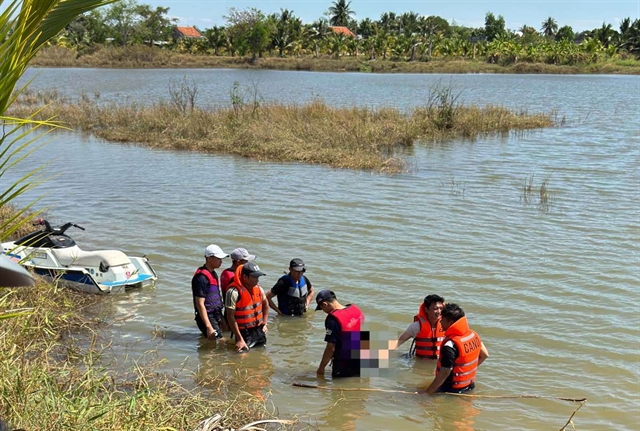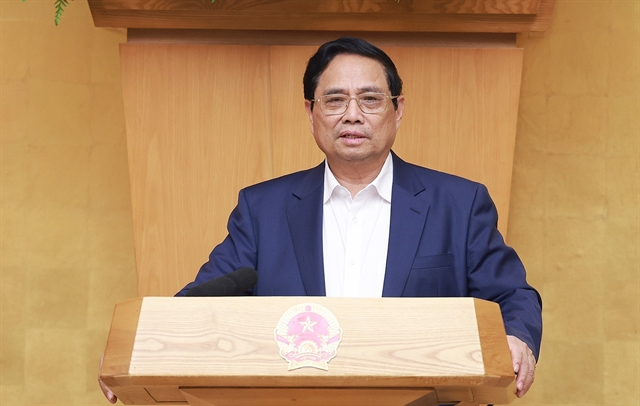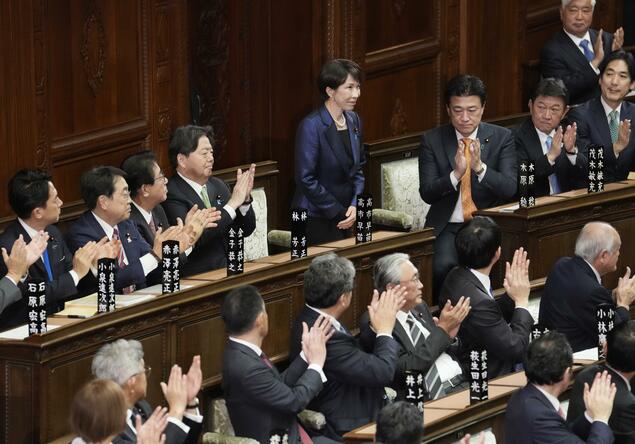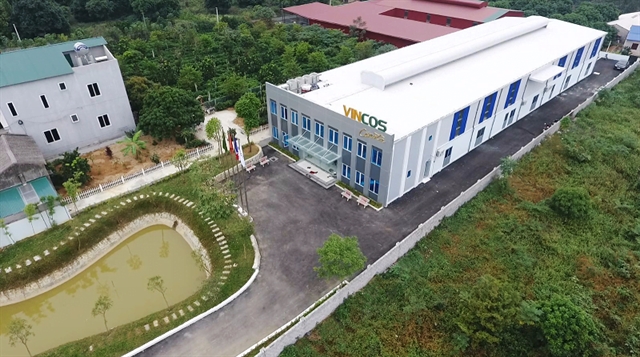 Politics & Law
Politics & Law


|
| Prime Minister Phạm Minh Chính speaks at the Government’s July 2025 meeting on legislative affairs. VNA/VNS Photo |
HÀ NỘI — Prime Minister Phạm Minh Chính on Wednesday called for continued investment in human resources, finance and infrastructure to fundamentally resolve institutional and legal bottlenecks in 2025.
The aim, he stressed, is to foster development, better serve the people, and transform legal institutions into a key driver of national competitiveness.
He made the remarks while chairing the Government’s July 2025 meeting on legislative affairs.
At the meeting, the Government reviewed and gave feedback on eight legislative proposals, including seven draft laws and the Government's proposal for the 2026 legislative agenda.
The draft laws include amendments to the Law on Judicial Records and the Law on Drug Prevention and Control, as well as the new Law on Civil Aviation, Law on E-Commerce, Law on Higher Education, Law on Vocational Education, and Law on the Press.
According to reports presented at the meeting, the proposed 2026 legislative agenda, which is set to be submitted to the National Assembly’s 10th session, includes around 40 draft laws, ordinances and resolutions.
These draft laws aim to establish crucial legal foundations across various sectors.
Specifically, the revised Law on Civil Aviation is expected to enhance the legal framework for a modern aviation industry, facilitating investment and development aligned with current needs.
Amendments to the Law on Judicial Records seek to reform administrative procedures and build a centralised judicial records database synchronised with the national population database.
Revisions to the Law on Drug Prevention and Control are designed to strengthen efforts to combat drug crimes, manage illegal drug users, and improve treatment and rehabilitation services.
The new Law on Higher Education aims to address institutional bottlenecks, improve governance in universities, and support advanced, globally competitive models.
The new Law on Vocational Education will revamp management mechanisms, policies, and training models in the vocational system.
The Bill on E-Commerce is set to enhance state oversight in the digital economy, promote cross-border trade, encourage technological innovation, and protect consumer rights.
The new Law on the Press will modernise legal regulations governing the press sector in response to digital transformation and new communication technologies.
In discussing the draft amendments to the Law on Drug Prevention and Control, PM Chính emphasised that prevention must remain the core strategy, aiming to curb demand and push back against drug-related crimes.
On the Law on Civil Aviation, he stressed its development-oriented purpose and called for greater mobilisation of private resources and stronger public-private partnerships in the development of airlines, airports, logistics and airport-linked urban areas. PM Chính also urged bold decentralisation and delegation of authority to address practical challenges.
Regarding the E-Commerce Law, the Prime Minister urged learning from international experiences and tailoring solutions to Việt Nam’s context. He called for effective tools to monitor and strictly handle violations, particularly counterfeit, substandard and untraceable goods, including medicines and food.
He also emphasised measures to prevent tax evasion and fraud, accelerate digital transformation in administrative procedures, and facilitate operations for both citizens and businesses.
For the new Higher Education and Vocational Education laws, PM Chính highlighted the need for specialised and unique training programmes in fields such as forensic science, infectious diseases and the arts.
He called for improving the quality of universities to quickly adapt to emerging sectors like semiconductors and artificial intelligence, encouraging innovation and entrepreneurship, and linking research and training with creative production and business.
In his concluding remarks, PM Chính requested that ministers directly lead and prioritise the development and finalisation of legal frameworks. He directed a comprehensive review of existing regulations and urged stronger decentralisation paired with appropriate resource allocation, better enforcement capacity, and effective tools for oversight and monitoring. Notably, he demanded a firm reduction in administrative procedures.
The Prime Minister also stressed the importance of ensuring both timeliness and quality in legal drafting. He called for openness to feedback, broad consensus-building and early engagement with the National Assembly and lawmakers in the policy and drafting process.
He asked ministers to accelerate the finalisation of legislative dossiers in line with legal requirements for submission to the National Assembly. He also assigned Deputy Prime Ministers to oversee specific legislative projects and tasked the Government Office with working alongside relevant ministries to incorporate feedback and swiftly issue the meeting’s resolution to guide implementation. — VNS




